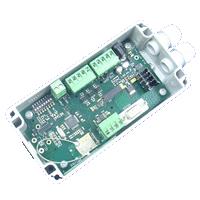 Add My Company
Add My Company
Sign In

Telemetry derives from the Greek, tele = remote and metron = measure and is now widely used throughout industry as a technique that enables remote measurement and reporting of a wide range of information. In the widest sense of the term, it includes data transferred over hard wired systems but is generally used to refer to wireless methodology using radio or infrared systems.
From its origins in Russia in the early 1930s, the technique has developed vastly over the years, resulting in many highly sophisticated modular systems now available to collect data in a large range of applications. From the motor racing industry, where it has been a key factor for engineers to assess the data in real time and to ensure the cars were in optimum condition for racing, to monitoring threatened wildlife species, telemetry has revolutionised the acquisition of data from remote sources.
Why Wireless DAQ ?
There are many situations where wireless technology has considerable advantages over hard-wired solutions. The examples above are just two scenarios where, without telemetry, the applications would not be feasible. And it’s not just the logistics of the applications that add to the advantages of wireless DAQ. Considerable savings can be made as there are no cable costs or expenses for associated wiring installation that in turn may involve additional building modifications or maintenance issues.
With the development of protocols such as Zigbee, Bluetooth, Wi-Fi and ETSI, systems can be easily set up and engineers can be assured that communication is secure, while performance is not compromised. In the industrial sector, companies, such as LCM Systems who has recently introduced the T24 wireless telemetry system for multiple data acquisition in real time, have built their systems around customised, proprietary communication protocols that guarantee high integrity, error free digital data transmission and these can co-exist with the protocols mentioned above.
When considering wireless systems another thought, once the security issue has been dealt with, is the battery life of the acquisition modules. In remote applications where there is no mains or DC power available, then battery-driven, low power radio units allow data collection over many years with no sustained power, so are considerably more cost-effective than hardwired systems.
For more information on The Versatility and Advantages of Wireless Data Acquisition talk to LCM Systems Ltd
Enquire Now
List your company on FindTheNeedle.

